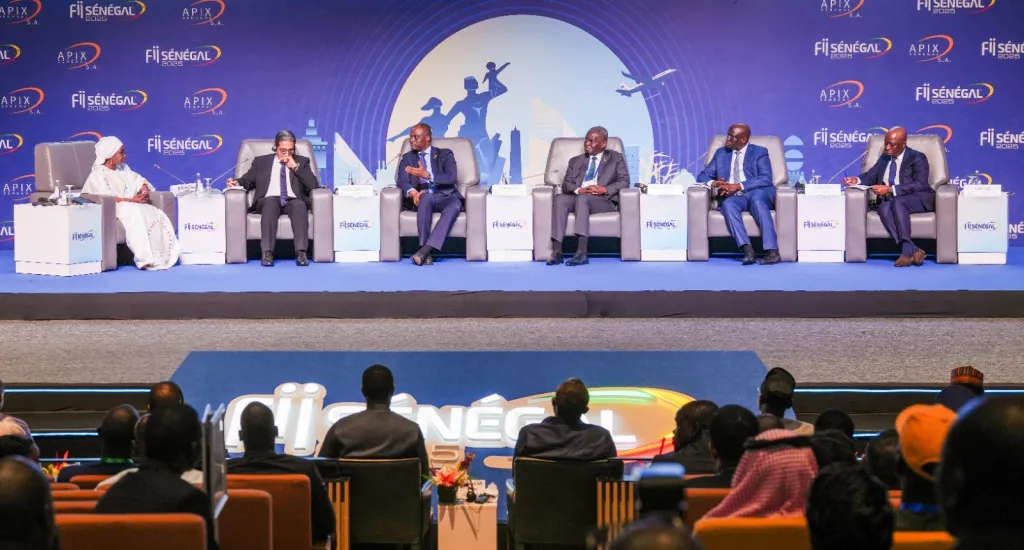
Before an audience of global leaders and investors, Senegalese President Bassirou Diomaye Faye laid out his vision for a new era of innovation, sustainability, and human capital development as the country aims to reshape its investment landscape.
Speaking at the opening of the second edition of the Invest in Senegal Forum in Diamniadio on Tuesday, President Faye called for deeper strategic partnerships and a comprehensive transformation of the nation’s business environment.
“We have undertaken major reforms in the legal and regulatory framework to create the essential conditions for investment,” he declared, addressing participants that included African leaders, diplomats, and investors from across five continents.
According to the Senegalese head of state, the revision of the investment code, already promulgated, is accompanied by an overhaul of the General Tax Code, the Labor Code, the Customs Code, and the Public Procurement Code. “These new instruments will offer targeted incentives and increased legal guarantees for businesses,” he said.
Faye noted that these reforms aim to strengthen Senegal’s competitiveness within the African Continental Free Trade Area (AfCFTA), creating an environment conducive to inclusive and sustainable growth. He emphasized that the country now seeks “strategic partnerships based on the transfer of technology and skills, the integration of local value chains, and co-investment with national actors.”
This agenda forms a core part of Vision Senegal 2050, built around four key pillars: developing a sustainable and competitive economy, promoting local territories, enhancing governance, and investing heavily in human capital.
“Without a well-educated and competent youth, there is no lasting prosperity,” he said, highlighting that more than half of Senegal’s population is under 25 years old.
The forum, held under the theme “Putting innovation to work for sustainability,” focused on opportunities in agribusiness, renewable energy, mining, the blue economy, and digital technology.
President Faye outlined priority sectors in the 2025–2029 development plan, including agro-industry, green energy, mining, petrochemical processing, and the digital and creative economy. “We want to move from importing agri-food products to processing them locally,” he stated, urging investors to support the creation of integrated agricultural hubs and regional agropoles.
He also highlighted Senegal’s vast potential in solar, wind, and green hydrogen energy, as well as plans to develop local processing units for zircon, gold, phosphate, gas, and oil.
The president estimated the country’s investment needs for the New Technology Deal — aimed at building critical digital infrastructure — at $1.7 billion.
“This forum expresses our desire to create bridges between talents, ideas, resources, and markets. It is a call to co-construct sustainable solutions in the service of progress,” he said.
Saudi Arabia, the guest of honor at this year’s edition, exemplified the growing cooperation between Dakar and Riyadh, with joint initiatives in urban mobility, agriculture, and access to clean water.
Faye concluded by reaffirming Senegal’s stability and openness to investors. “Senegal is moving forward, despite the global economic situation. We remain open and willing to welcome investments that bring added value and shared prosperity,” he said, applauding the collaboration of both national and international private sectors.



